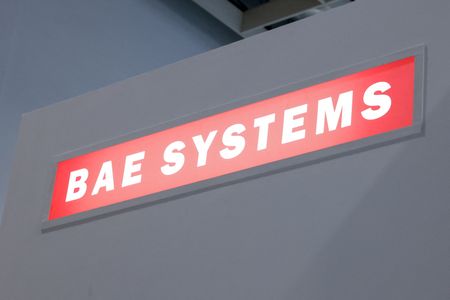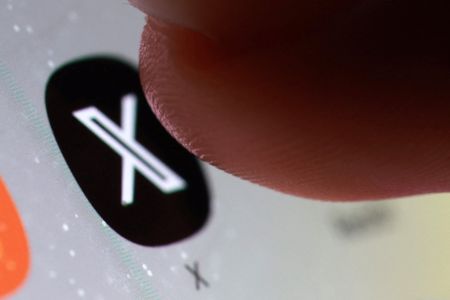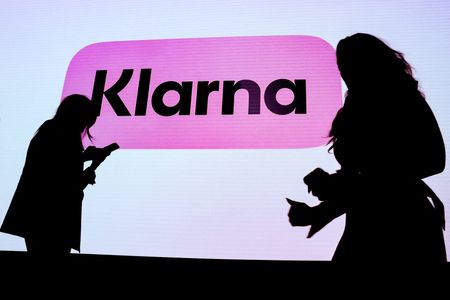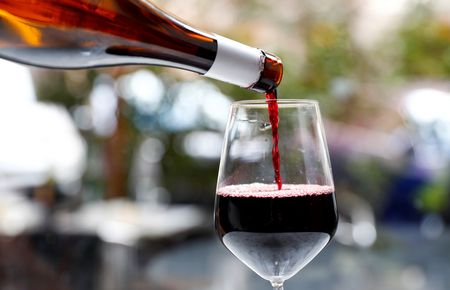By Sarah Young and Tim Hepher
LONDON/DUBAI (Reuters) -Britain’s biggest defence company BAE Systems is teaming up with Boeing and Saab to develop a replacement for the country’s Hawk aircraft, as the country looks for a new fleet of military training jets.
Confirming a Reuters exclusive from July, BAE said on Tuesday the three companies had signed a letter of intent to collaborate, and would base their design on the T-7, which Boeing and Saab have jointly developed for the U.S. Air Force.
Britain said in June it needed to replace its out-of-production Hawk fleet, part of which is recognisable through its Red Arrows display team, and said then it would welcome interest from UK-based suppliers.
The government is expected to launch a competitive process for a new trainer jet shortly.
“Our new collaboration with Boeing and Saab will enable us to present a compelling offer to the UK Royal Air Force and our global customers,” said BAE Systems’ Air sector managing director Simon Barnes, highlighting that a future product could also appeal to BAE customers like Saudi Arabia and Oman.
The three companies’ collaboration includes work on a training system, integration of live and synthetic training capability and associated mission systems, BAE said.
GROWING DEMAND FOR TRAINER JETS
The market for military trainer aircraft is forecast to rise to $3.7 billion by 2030 from $2.8 billion, excluding spending on support and training services, according to U.S.-based consultancy AeroDynamic Advisory.
Key suppliers include the T-7, Leonardo’s Aermacchi M-346 and the Korea Aerospace Industries T-50 Golden Eagle.
BAE could face competition from Aeralis, a privately owned early-stage British company which has designed a modular jet trainer, for the Hawk replacement.
Under its plan, BAE said final assembly of the jet would be completed in Britain.
The Hawk trainer was developed by BAE’s corporate predecessor in the early 1970s. The Hawk T2 jets currently flying are set to be retired in the next decade.
Boeing’s CEO of Defense, Space & Security, Steve Parker, had hinted on Sunday that a partnership deal for an international version of its T-7 trainer was imminent.
It marks a change in the way Boeing and some defence companies typically approach such competitions, after traditionally insisting on taking the lead rather than working alongside a local prime contractor.
“That is no longer the case,” Bernd Peters, business development for Boeing Defense, Space & Security, told Reuters at the Dubai Airshow, noting that BAE would lead the project.
“That is a different way of thinking but also a recognition that as defence budgets around the world increase, we…have to be innovative in our approach to capturing that share.”
EYE ON EXPORTS
The choice of trainer also has potential implications in the bigger global market for fighter jets.
Although BAE no longer produces Hawks, the partnership could leverage BAE’s incumbency, with more than 1,000 jets sold to 18 nations.
“The focus for this particular partnership is the UK but there is a broader global Hawk fleet and certainly that has potential to open doors down the road,” Peters said.
By offering a sophisticated all-new trainer, experts also say some training that would otherwise have to be carried out in the cockpit of warplanes would be transferred to the smaller jet, saving costly flying hours on aircraft like the F-35.
(Reporting by Sarah Young and Tim Hepher; Editing by Mark Potter and Louise Heavens)











